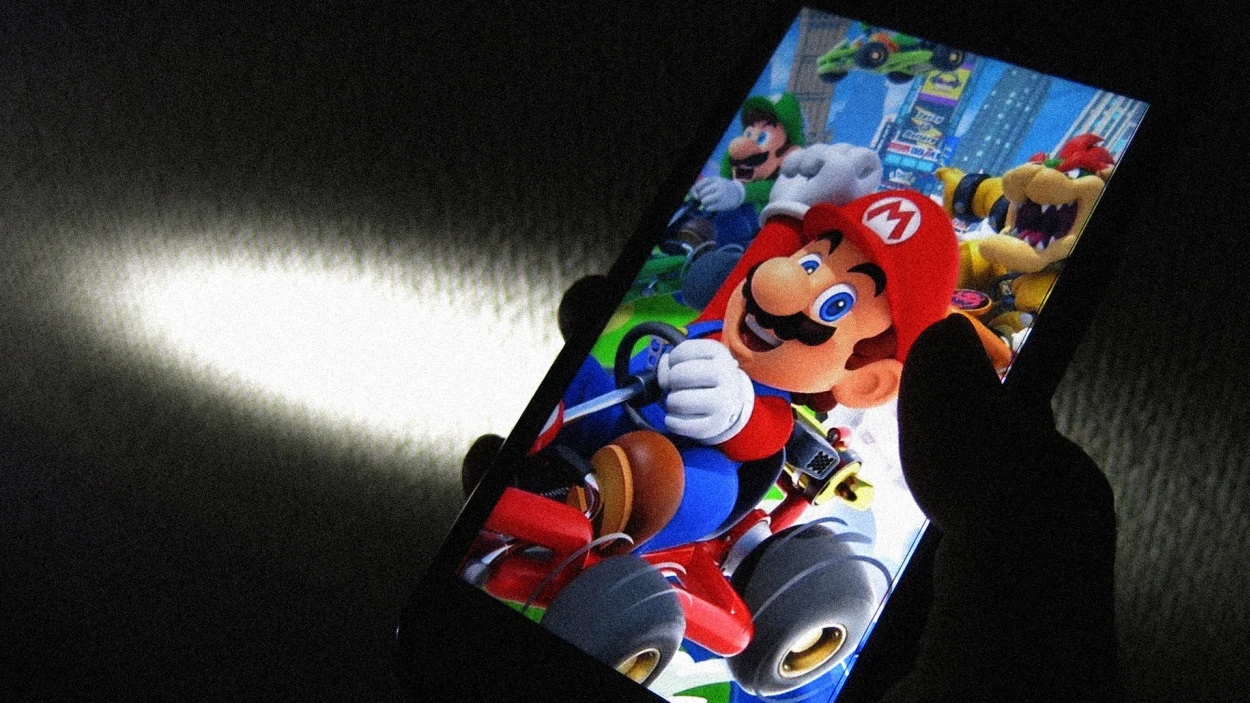POV: The class action lawsuit against Nintendo over ‘Mario Kart’ lootboxes shows the power of collective action
By Jonathan Evans
A class action lawsuit filed against Nintendo was escalated recently to the federal docket. The plaintiff, a young gamer, claims that the lootbox mechanism in the company’s popular mobile racing game, Mario Kart Tour, “capitalized on and encouraged addictive behaviors akin to gambling.” If reality is broken, as Jane McGonigal’s groundbreaking book noted, the Nintendo suit reminds us that the video game world is, too. And while legislation and government intervention may appear attractive remedies, collective consumer action is the most effective way to regulate the game industry.
It’s no secret that online video gaming has a problem with toxicity. It wasn’t all that long ago when a dispute between Call of Duty gamers devolved into one of the most appalling cases of swatting to date (and it isn’t showing any signs of abating).
Stories like this tempt us to think issues lie with individual players and the community surrounding games, not the video games themselves. However, what’s fostering toxicity and other harms isn’t unique to videogames. It exists beyond their boundaries in places built around transactional environments. Those familiar with economics know this as the problem of moral hazards.
The term moral hazard describes a situation where an individual is incentivized to engage in risky behavior through the realization that someone else will bear the costs of the risk. That is, the person will take risks they otherwise wouldn’t because someone else will pay for it.
Consider griefing, a well-known moral hazard in video games. The griefer succeeds in many cases because other players in the game do not realize the skewed intentions of the griefer: Their intention is to ruin others’ enjoyment despite the objectives of the game.
Think of MMOs like World of Warcraft. Whenever there is an opportunity to kill other players, preferably the weaker ones, the griefer strikes, earning no reward from the game other than the satisfaction of annoying the other player. If the victim could reliably identify who the griefers are, they could take action and avoid the aggravation. But because that is often hard to do, we need a solution.
Fortunately, there is a simple one: Identify and ban griefers. As with any other moral hazard, the solution for the video game company is to make griefers bear the costs of their actions. Companies are incentivized to do this, because frustrated gamers will leave games that do not regulate behavior. But the solution isn’t always so simple, especially when the moral hazard is in the game itself.
The pre-release of Star Wars Battlefront II is an excellent test case. Star Wars Battlefront II involves several popular game modes where players compete in teams or as individuals to defeat their online opponents. Players control a character who can be customized not only to make cosmetic changes to their character’s appearance but to provide in-game enhancements boosting their effectiveness.
Those in-game enhancements were not distributed equally in the pre-release, but were acquired either through grinding (playing a lot) or paying real money for a chance to acquire them. Players without extensive play-time or cash expenditure would be at a disadvantage.
This disadvantage was compounded by the fact that some enhancements were both hard to acquire and overly powerful, meaning players who had them could defeat players at the same skill level with ease, and even routinely defeat players at a higher skill level.
Star Wars Battlefront II placed a premium on identifying which items provided an advantage and knowing how to obtain them, so that players willing to splash the cash could trounce their ignorant, inexperienced, or cash-poor opponents. When the gaming community squawked, the manufacturer, Electronic Arts, eliminated the most egregious pay-to-win option.
Many mobile games like Diablo Immortal and Pokemon Go have adopted a full-on, pay-to-win model, which raises the stakes. If players recognize the easiest way to get an overpowered item is to spend money, an economy develops based on the moral hazard. To seize the advantage, players will spend money to acquire the item until they get it, they’re out of money, or they give up.
Even if the behavior like this is low on the scale of harm, the system itself is less benign. It fosters an unfair environment with the goal of making money, providing the fastest rewards to players with money at the expense of those without. In some cases, games like this encourage gamers to make unwise and potentially life-altering decisions. That’s especially the case when game mechanisms tap into the addictive part of human psychologies to encourage gamers’ unwavering devotion and spending.
When we spot a moral hazard, we need to follow the lead of the Star Wars Battlefront II beta-testers who caused Electronic Arts to shift their model. We can use our collective power as consumers to make a difference. Ideally, it involves marshaling a large online community to press for change from a game studio or distributor.
Contacting consumer watchdog organizations or local legislators to use legal mechanisms could also help enact change. The Federal Trade Commission recently ruled that Epic Games, developer of the smash hit Fortnite, must refund $245 million to players after being found to have unnecessarily exposed children to online abuse through the game’s default user settings. While the FTC’s actions are to be applauded, the kind of harms prevalent in video-gamers are ones best detected and resolved by gamers and their allies. It isn’t as if the FTC’s investigation and action against Fortnite’s developer Epic Games emerged ex nihilo.
Many online video games provide ideal conditions for toxicity, and it’s time for major game studios to address them. We can find ways to shift the costs created by games with moral hazards from individual players to their manufacturers and distributors, who use in-game mechanisms that limit our capacity to solve problems collectively.
We could also stop playing these games and reward responsible companies with our money instead. This isn’t a complete solution, but it’s proven effective. And it steers gamers to satisfying gaming experiences. Just ask Elden Ring players.
Jonathan Evans is a professor of philosophy and an expert on sports and game ethics. He is a public voices fellow with the OpEd Project.
(9)



